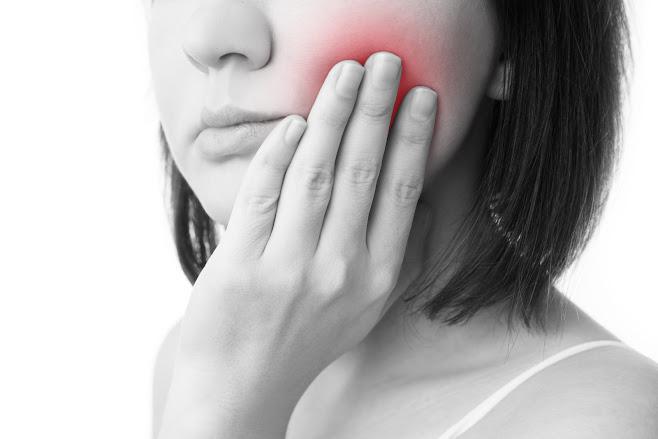How To Know If You Grind Your Teeth At Night

Teeth grinding, or bruxism, is one of the worst habits for the health of your teeth and gums. Unfortunately, many people have a addiction of grinding their teeth and don't fifty-fifty realize it. If yous grind your teeth at night while you sleep, you may not be aware of the problem unless yous know the common effects it can have. Here are four signs y'all're grinding your teeth in your sleep.
one. Waking Up With Jaw Pain or Headaches
Patients with nighttime bruxism often grind their teeth for hours at a time. This prolonged stress on the jaw and facial muscles can cause pain that doesn't get abroad when you wake upwardly. If you are frequently waking upwards with headaches that eye around your temples, this may be a sign of grinding. Y'all may as well experience soreness or general tightness in your jaw muscles or even earaches.
While jaw hurting is likely to continue until bruxism is addressed, at that place are a few unproblematic exercises that can help to relieve TMJ pain or soreness from bruxism. Opening your mouth and pushing on the side of your jaw stretches the jaw muscles inward to reduce stiffness and soreness. You tin also place a thin object, such as a pencil, betwixt your teeth and slowly move your jaw side to side.
2. Wearable on Dental Enamel
Teeth grinding causes a very characteristic type of wear on dental enamel. The chewing surfaces of the teeth in people with bruxism will often exist very flat, and all teeth will likely be of similar length rather than varying length. This type of wear can crusade the front teeth to announced too short, and you may notice that your teeth match up together in a very specific position due to repeated wear in the same areas.
When treating enamel wear from teeth grinding, dentists frequently have to make some compromise. It may not exist possible to restore the original length of the afflicted teeth without disrupting the patient's bite and making it difficult for them to close their mouth. Your dentist may recommend dental crowns to replace teeth that are specially worn rather than attempting to restore them.
3. Sensitivity to Temperature and Pressure
Sensitivity caused by teeth grinding can be particularly problematic since the biting surfaces of the teeth are the parts that article of clothing the most. In addition to flattening the teeth, grinding can create pocket-sized cracks or chips in the teeth that expose the dentin inside them. Dentin has a high quantity of fretfulness that are sensitive to temperature and pressure when non protected by enamel.
4. Receding Gums
The gums and connective tissues holding the teeth in place are subjected to the same stress and force equally the teeth during grinding. Grinding causes the teeth to move slightly in the socket, and over time, this can create pockets in the socket that let bacteria to enter. Bacteria in the dental socket will cause swelling and inflammation in the gums, and eventually, they will brainstorm to recede and expose the roots of the teeth.
While gum recession may stop or even reverse after treatment for teeth grinding, years of grinding can result in an extreme recession of the gums that requires surgical treatment. An oral surgeon tin can perform glue grafting to take soft tissue from other areas in the mouth and supplement the recessed gums.
Teeth grinding negatively impacts the health of your mouth in many means, so you should seek treatment as soon as you become aware of the status. Spotter for these signs of nighttime teeth grinding and contactDr. Jerry F. Maymi & Associatesfor the professional handling that can proceed your whole mouth healthy!
Source: https://drmaymi.com/4-signs-you-grind-your-teeth-in-your-sleep/

0 Response to "How To Know If You Grind Your Teeth At Night"
Post a Comment